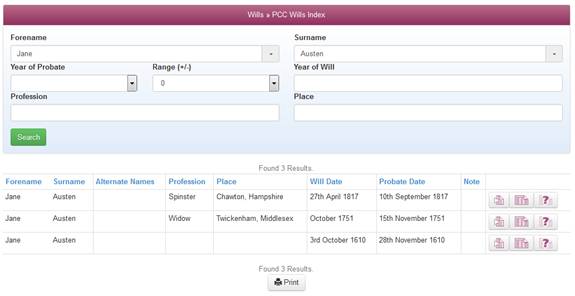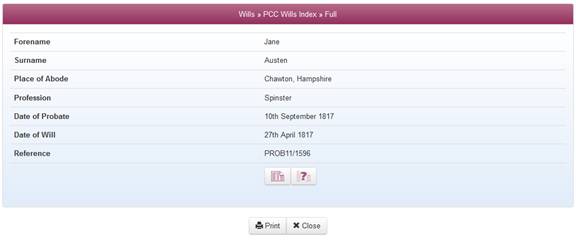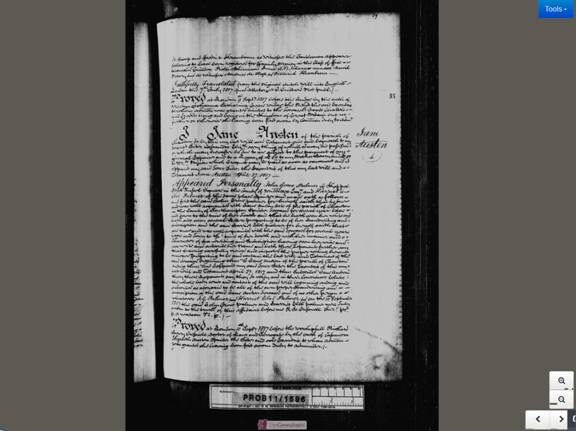Wills
Guide to Wills 1384-1858
Wills are a valuable source of genealogical information as they can give details of family members, places of residence and burial, as well as revealing details about their possessions.
Before 1858, England and Wales were divided into two provinces. The largest and most influential was Canterbury, which covered the South of England up to the Midlands and also Wales. The other was York, which covered Durham, Yorkshire, Northumberland, Westmorland, Cumberland, Lancashire, Cheshire, Nottinghamshire, and the Isle of Man. The two provinces of Canterbury and York each had their own Archbishop, and were divided into several dioceses. Each diocese had a minimum of two bishops, and these dioceses were also divided again into archdeaconries.
All wills, up until 12 January 1858, had to be proven in a church court to ensure that the will was legal. Wills were proven in over 250 church courts across the country, and the records of these are now stored mostly in local record offices.
Where a will was proved depended on which lands the property covered, and if it was contained within a single archdeaconry, then the will would be proven in the Archdeacon's court. If the property stretched across several archdeaconries, it would have to be proven in a Bishop's Court, or in the Archbishop's Prerogative Court if it covered more than one diocese. There were, however, occasional exceptions to this rule, such as if the person died abroad then the will would be proven at the Prerogative Court of Canterbury regardless of where the property was.
Locating Wills
Wills proven in the Prerogative Court of Canterbury are now held at the National Archives in Kew. TheGenealogist is undergoing a project to transcribe the records so that they are available to access online as part of Premium and Personal Plus subscriptions.
Wills proven in the Prerogative Court of York are currently held at Bothwick Institute, part of the University of York.
All other wills up to 1858 are held in local record offices across the country, apart from those in Wales from 1521, which are held at the National Library of Wales in Aberystwyth.
Wills on TheGenealogist
Will Indexes
Locating wills can be quite a difficult task, so it's wise to try to locate an index before heading off to the archives to see if a will exists. Many indexes are now available on CD and online, and TheGenealogist has a collection available for Personal Plus, Gold and Diamond Premium subscribers, further Wills records are also available exclusively to Diamond subscribers, full coverage can be seen here http://www.thegenealogist.co.uk/coverage/wills-probates-and-testaments/?level=diamond#includes
How to: Using the Will Indexes Online
The Will Indexes are listed by area on your Search page under 'Wills, Probates and Testaments'. Once you select the area and continue to the search page, you'll be able to select a specific volume.
From the search page, you can either choose to browse the volume page by page and by using the bookmarks, or you can use the forename and surname search to enter the name of the person you are looking for. Our OCR system (Optical Character Recognition) turns the pages into searchable text, allowing you to enter search terms and bring back all the pages with matching results.
PCC Wills
There are over 1 million records in the Prerogative Court of Canterbury wills and probate collection, which covers the years 1384 to January 1858. The records are copies of registered wills, which were written into volumes by the clerks at the church courts, and many earlier records are in Latin.
An example, showing the will of author Jane Austin is detailed below:
http://www.nationalarchives.gov.uk/dol/images/examples/pdfs/JAusten.pdf
The records are searchable by name, year of will, year of probate, area and profession. The search results also show the image of the original record.
How to: Using the PCC Wills Online
The PCC Wills are located on your Search page under 'Wills, Probates and Testaments' or available to search using the Master Search.

The Standard Search page provides a form which allows you to enter forename, surname and year of probate. To narrow your search down, you can also enter the Year of Will, Profession and Place. The year of probate relates to the year that the will was proven by the church courts, where-as the year of will is the date when the person actually recorded the will.

The results will be listed under the search box, and will show all the details included on the advanced search form. There are also links on the right of each entry, which allow you to submit a correction to our data team, open up the original page image, and also view the will as a printable transcript.


